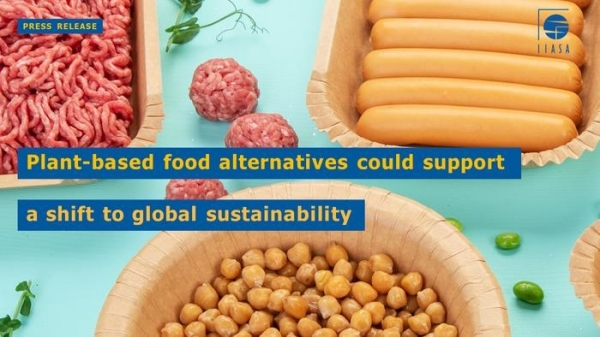Replacing 50% of meat and milk products with plant-based alternatives by 2050 can reduce agriculture and land use related greenhouse gas (GHG) emissions by 31% and halt the degradation of forest and natural land, according to new research.
According to the study just published in Nature Communications, additional climate and biodiversity benefits could accrue from reforesting land spared from livestock production when meat and milk products are substituted by plant-based alternatives, more than doubling the climate benefits and halving future declines of ecosystem integrity by 2050. The restored area could contribute up to 25% of the estimated global land restoration needs under Target 2 of the Kunming Montreal Global Biodiversity Framework by 2030.
“We need much more than ‘Meatless Mondays’ to reduce the global GHG emissions driving climate change—and this study shows us a path forward,” said study co-author Eva Wollenberg of the University of Vermont (UVM). “Plant-based meats are not just a novel food product, but a critical opportunity for achieving food security and climate goals while also achieving health and biodiversity objectives worldwide. Such transitions are challenging and require a range of technological innovations and policy interventions.”
Read more at: University of Vermont
Replacing 50% of meat and milk products with plant-based alternatives by 2050 can reduce agriculture and land use related greenhouse gas (GHG) emissions by 31% and halt the degradation of forest and natural land, according to new research in Nature Communications. (Photo Credit: International Institute for Applied Systems Analysis (IIASA))


